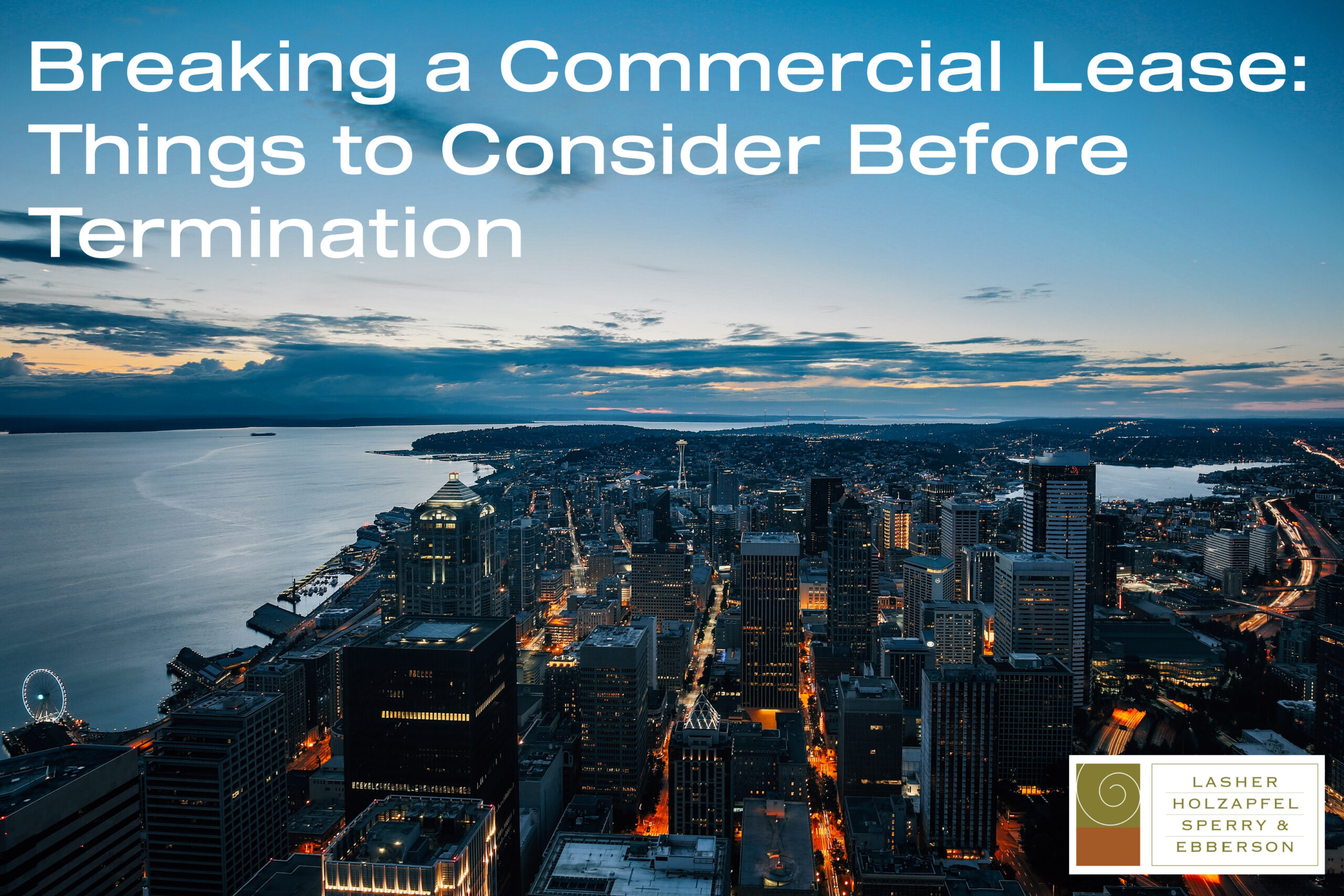Breaking a Commercial Lease: Things to Consider Before Termination

Posted on October 3, 2022 by Kelly Rutledge
The world is transforming in the post-covid era and business needs are evolving as consumer habits change. These changes can directly impact the space where you conduct business and have you contemplating what to do about one of your business’ largest expenses. Whether your company is growing and in need of a new space to accommodate your expanding team or you are considering transitioning to a remote office, there are a few important considerations to keep in mind if you are thinking about breaking your commercial lease. What follows are some key terms to look for when thinking about terminating your commercial lease.
Before deciding to leave your current space, you will want to closely review your lease or have an attorney review it for you. Understanding the basic terms of your lease is important when you are considering termination. Some leases may allow you to terminate due to a specific set of circumstances; others may provide alternative options in lieu of termination, such as subletting or assigning the remaining period of your lease.
There are a few terms which can be particularly burdensome and costly. Specifically, watch out for an acceleration clause. Acceleration clauses result in the entire amount due over the life of the lease to become payable upon breaking it. This may not be worrisome if you have only a few months left on your lease term, but if you have a significant commitment remaining, this could result in a very high cost to your business. A liquidated damages clause may also result in a high exit fee. Liquidated damages assign a specific value to the harm caused to a party when a contract is breached; in this case, the lease terminating. The amounts due under a liquidated damages clause can range from the value of a month or two of rent to a much higher value depending on the space.
When breaking a lease, or even leaving a month-to-month lease, review your lease document for notice requirements. While many residential leases only require 30-day notice, some commercial leases require a longer notice period, such as 60 or 90 days. Ensuring that you give proper notice will help reduce the chance you have to pay for additional time in the space.
Consider options that may suit both your needs and the needs of your landlord. Does your landlord own a building with another space that may suit your needs? Relocating to another space owned by your currently landlord may offer a negotiation point for terminating your lease.
If your lease contains an early termination clause, read it carefully. Often the early termination clause will only allow you to break the lease under a set of specific circumstances. If your situation falls under one of the listed circumstances, you may be able to terminate the lease without significant penalties.
A key to being able to end your lease on good terms with your landlord is ensuring the lease was drafted with terms that allow you to navigate difficult situations without conflict. If you are planning to enter into a commercial lease, consider seeking the assistance of an attorney to negotiate the terms of your lease on your behalf.
If you need legal advice regarding your commercial lease, the attorneys in Lasher’s Real Estate and Business groups are here to help.

